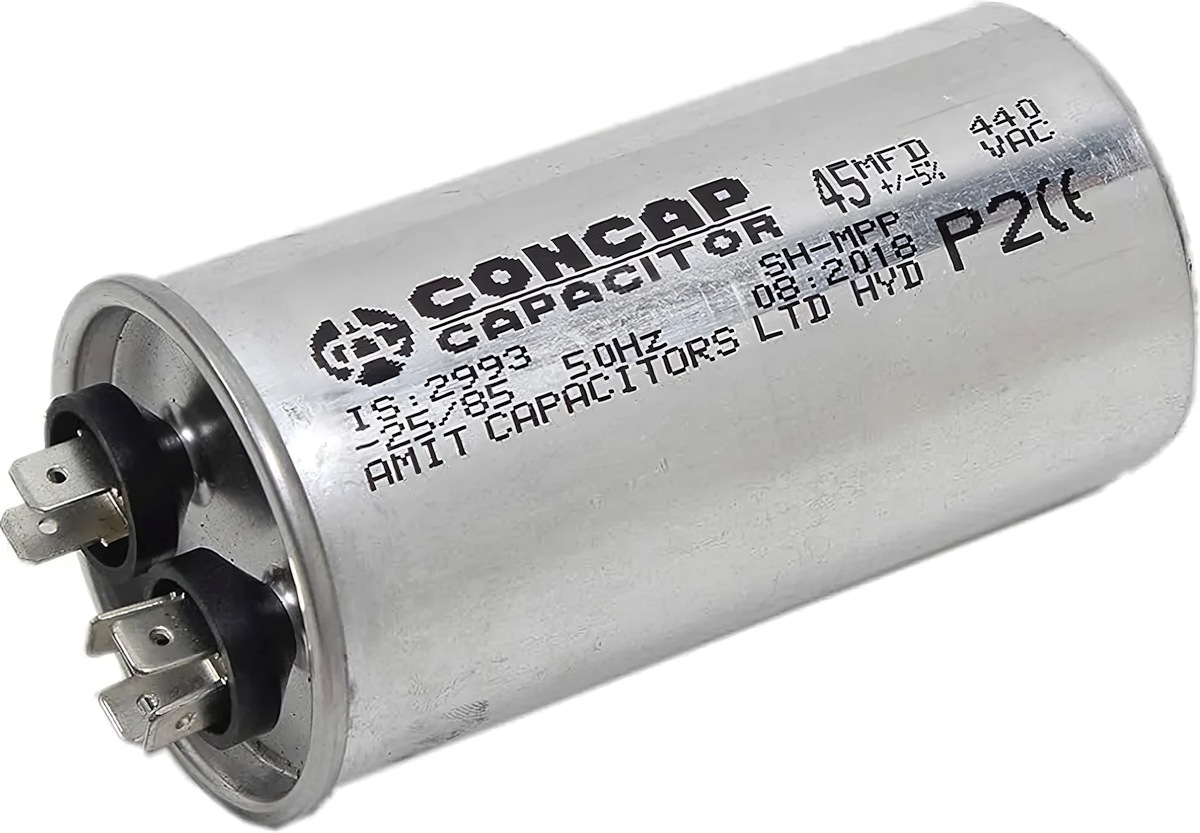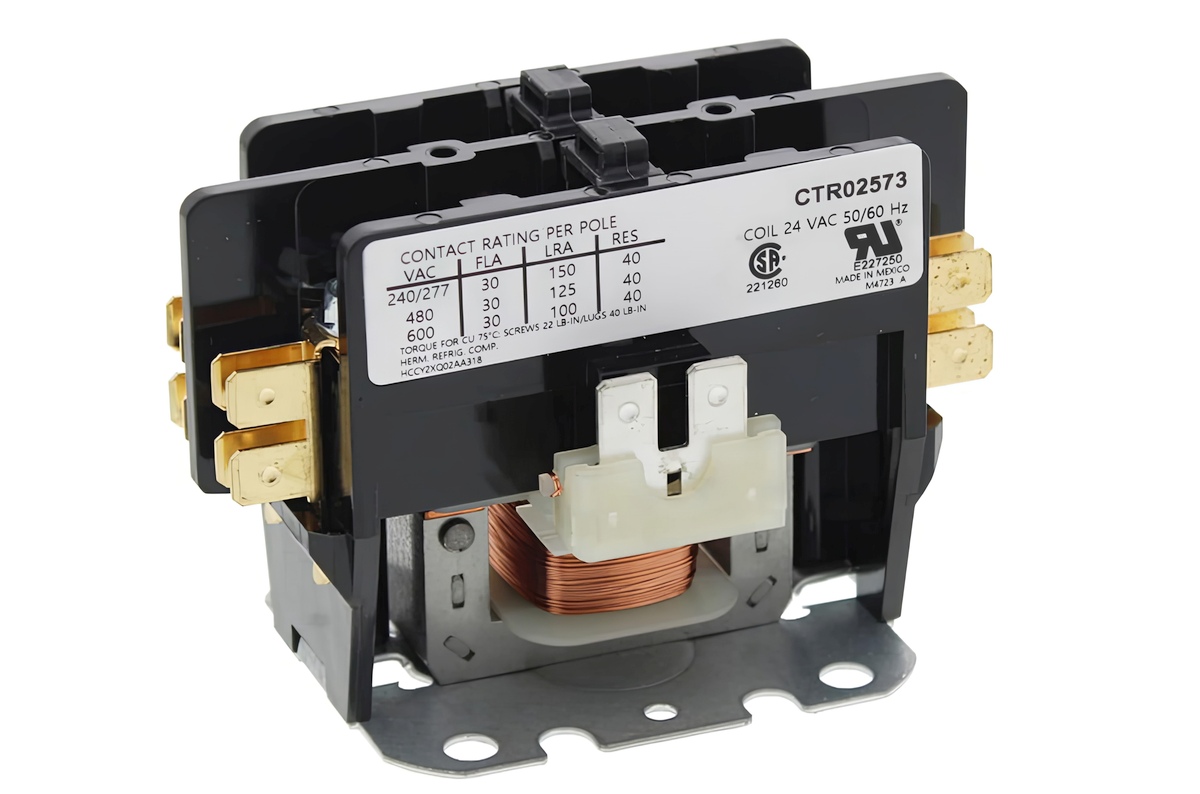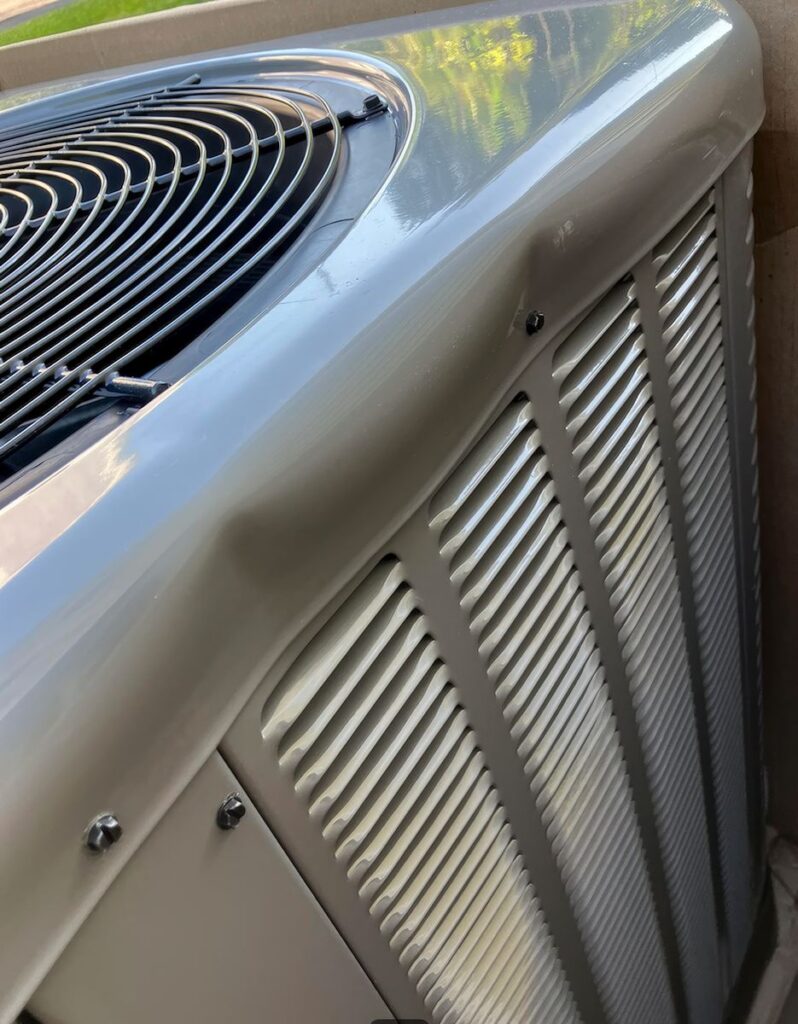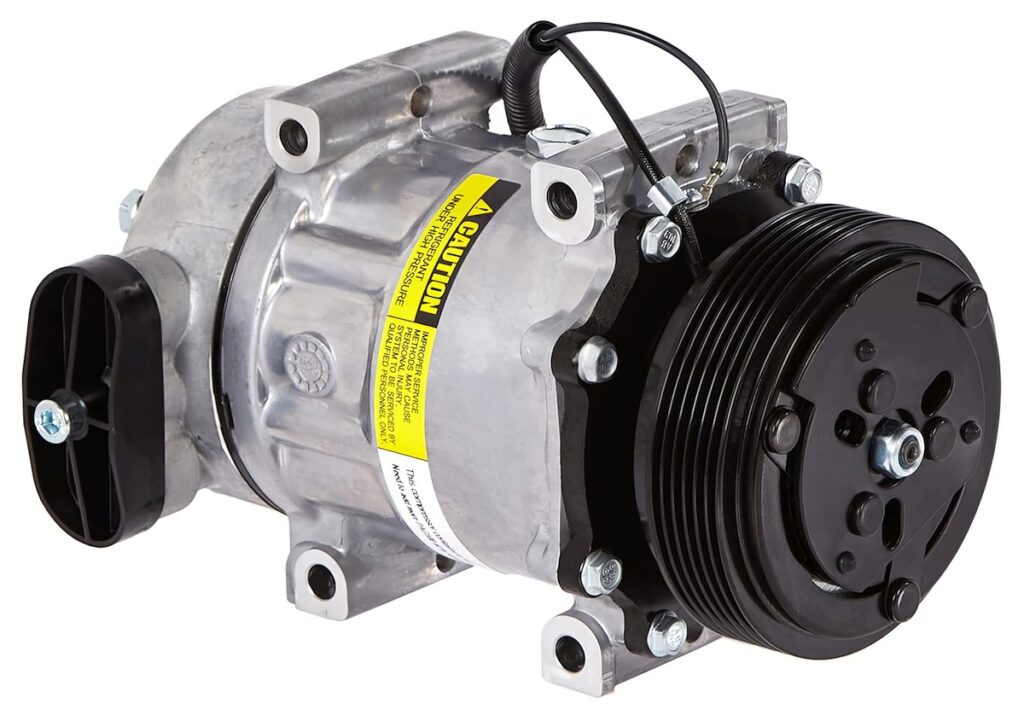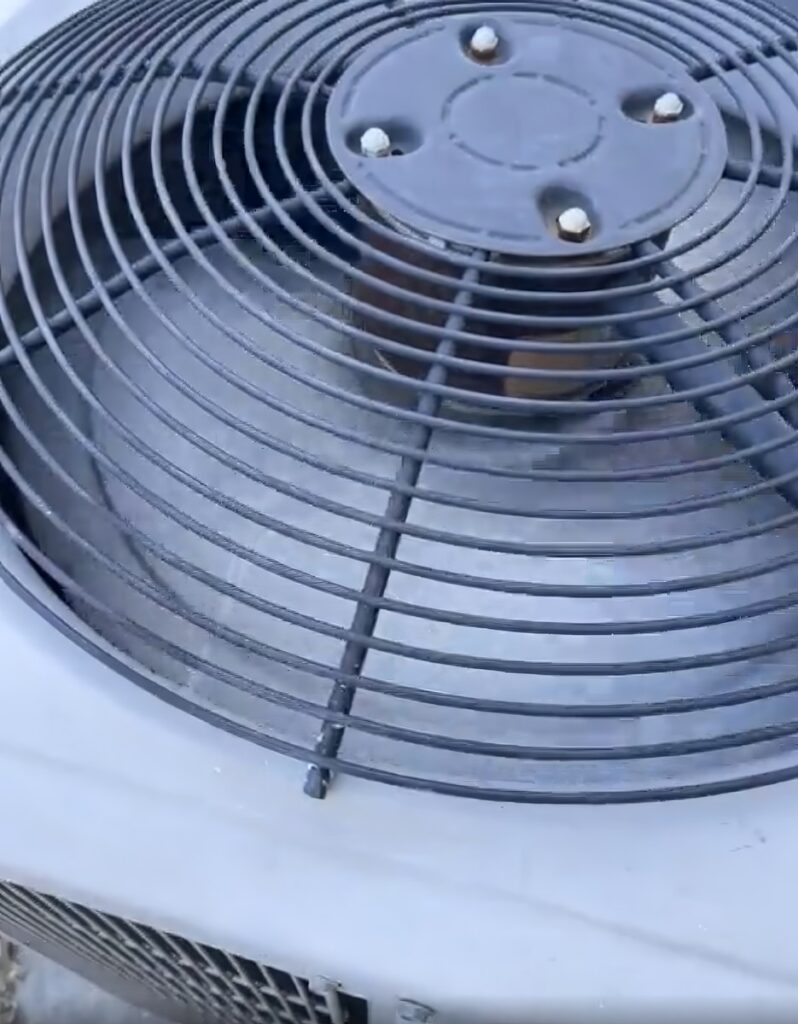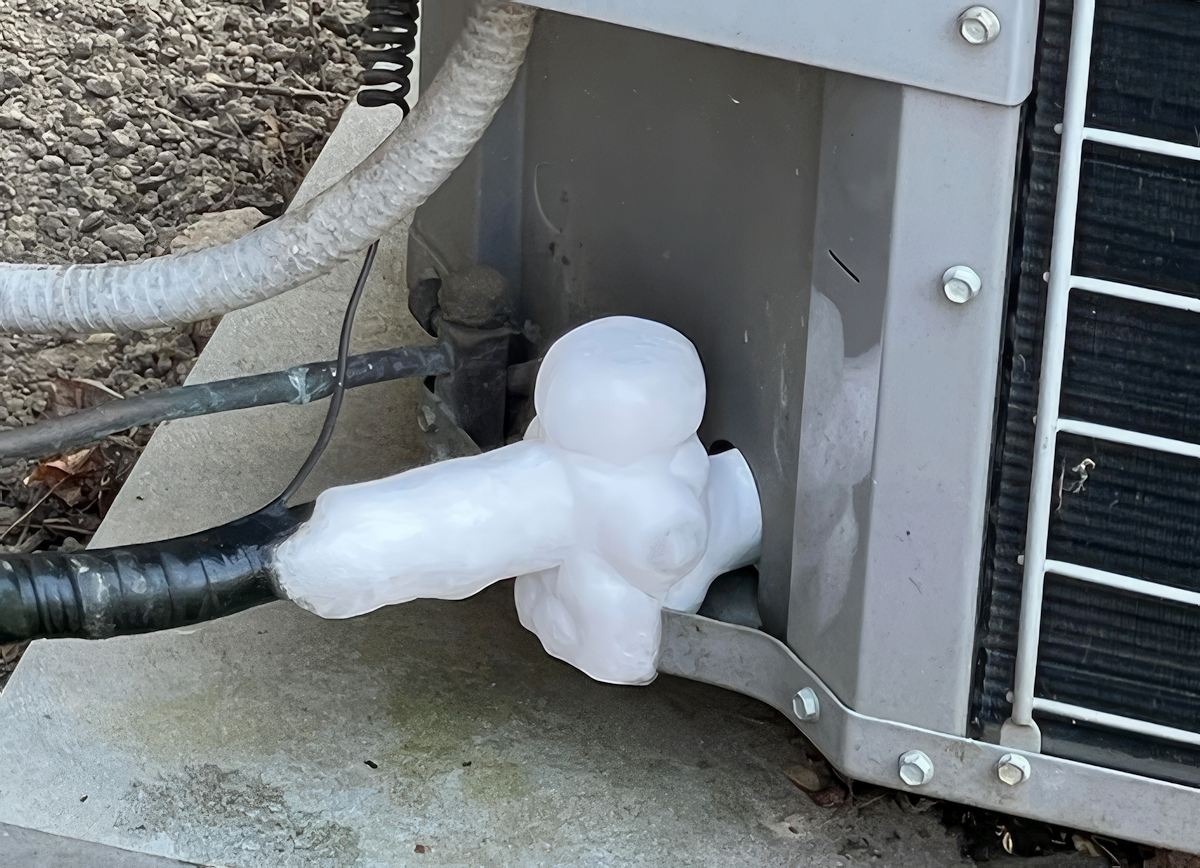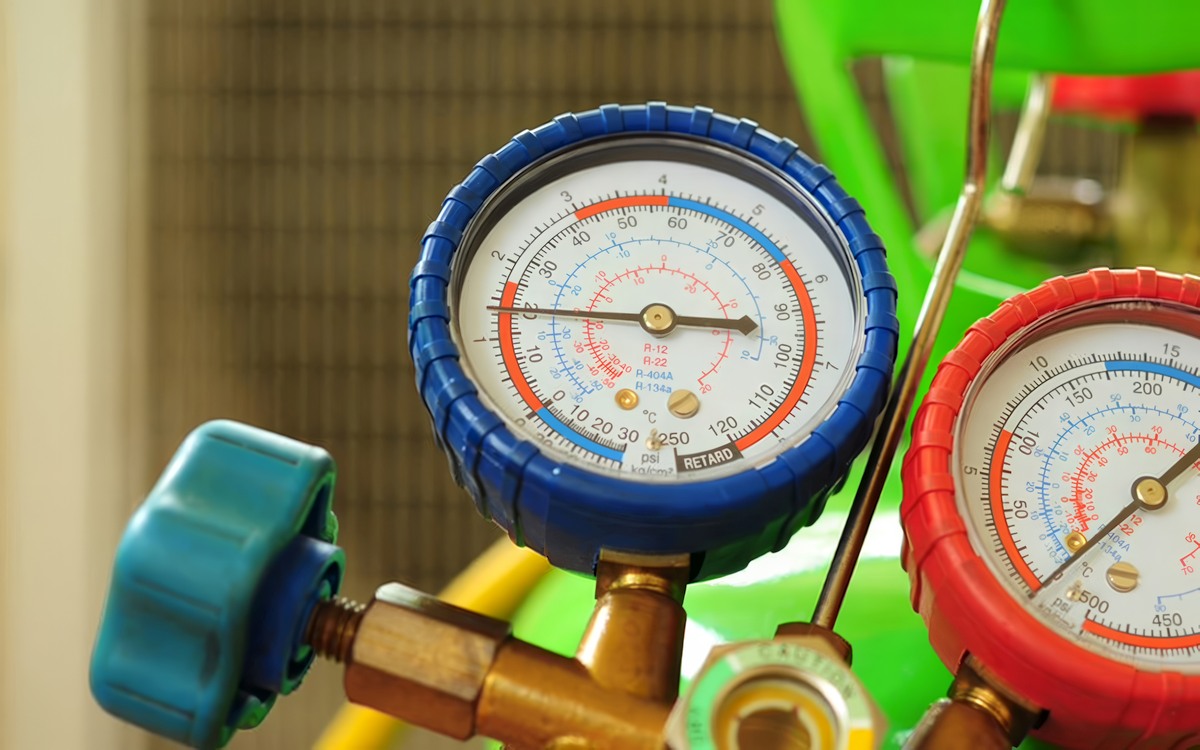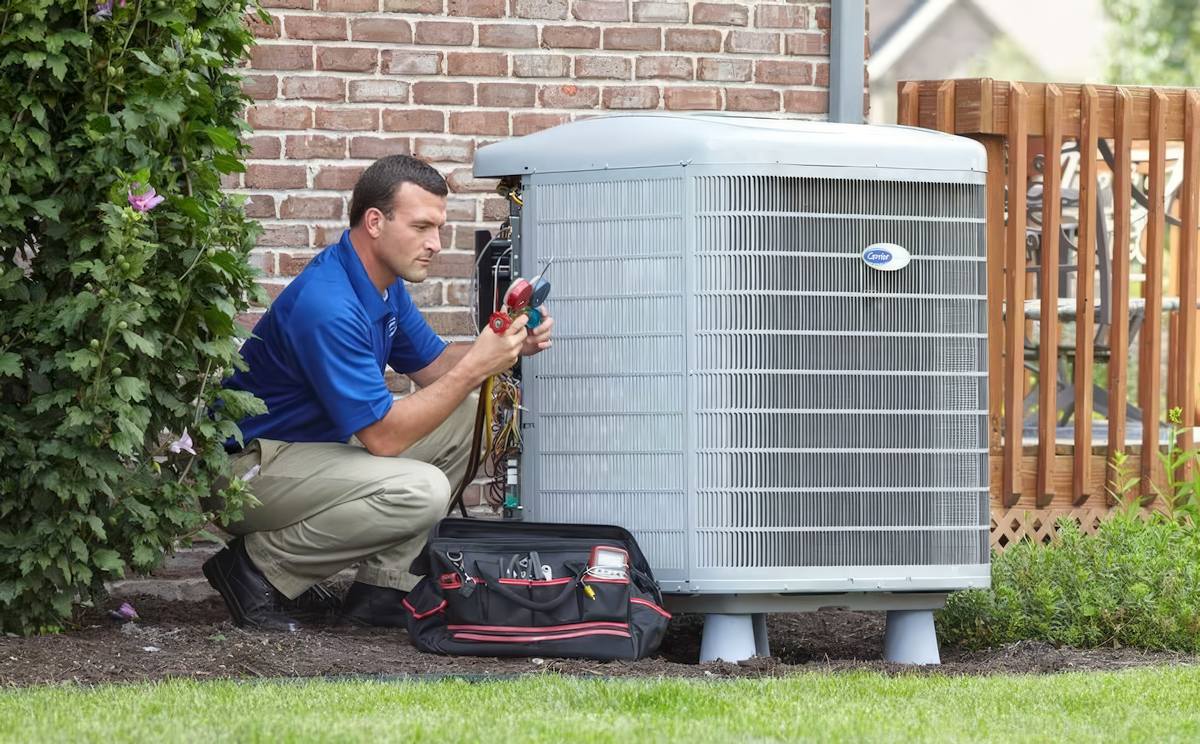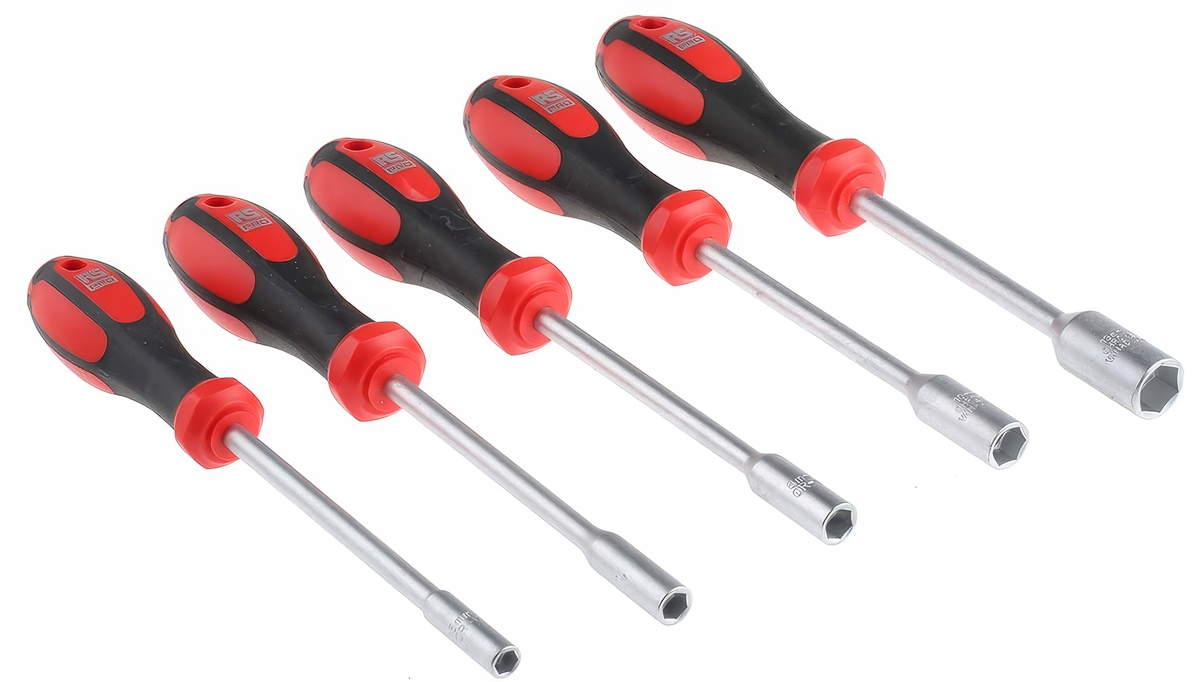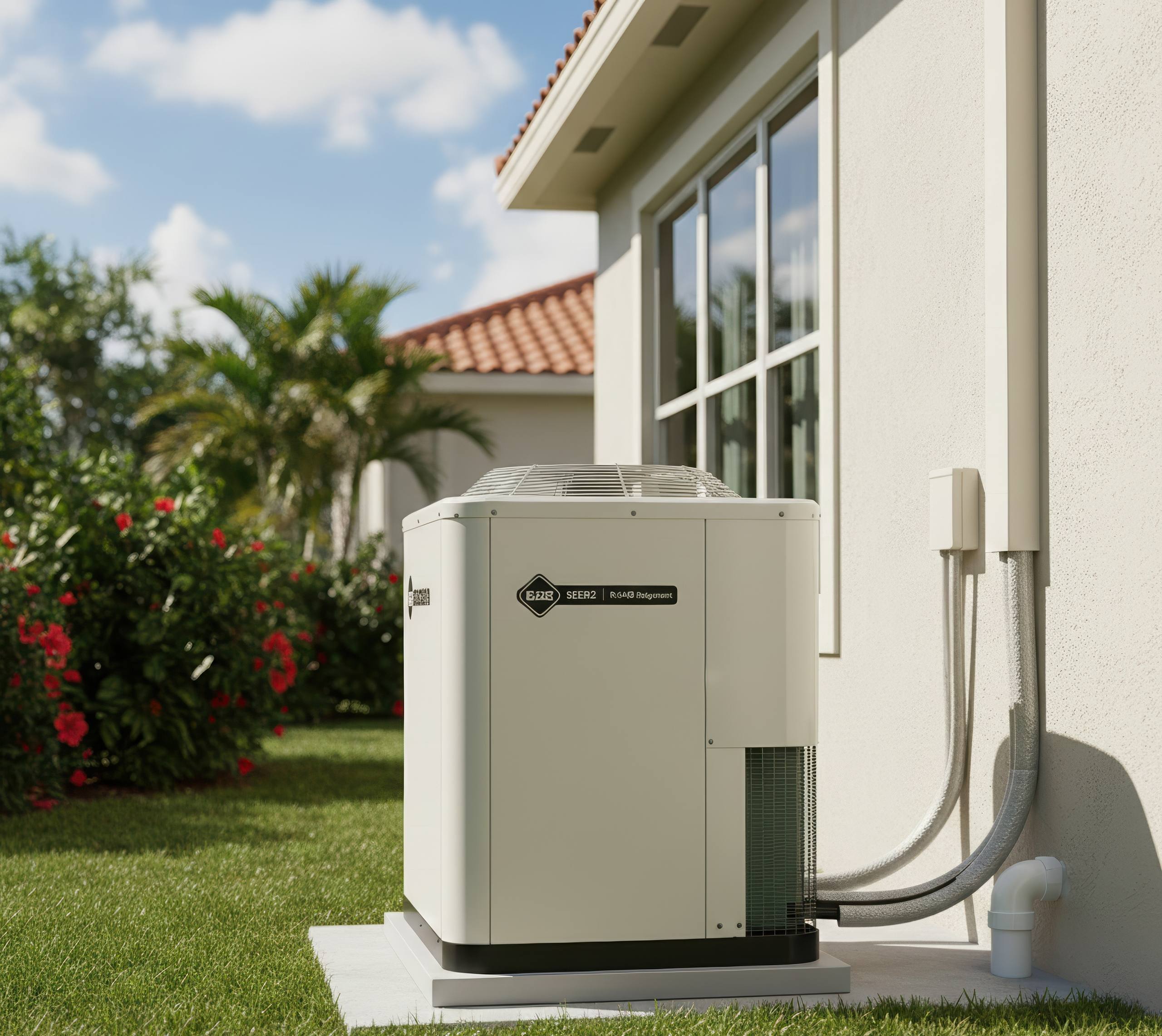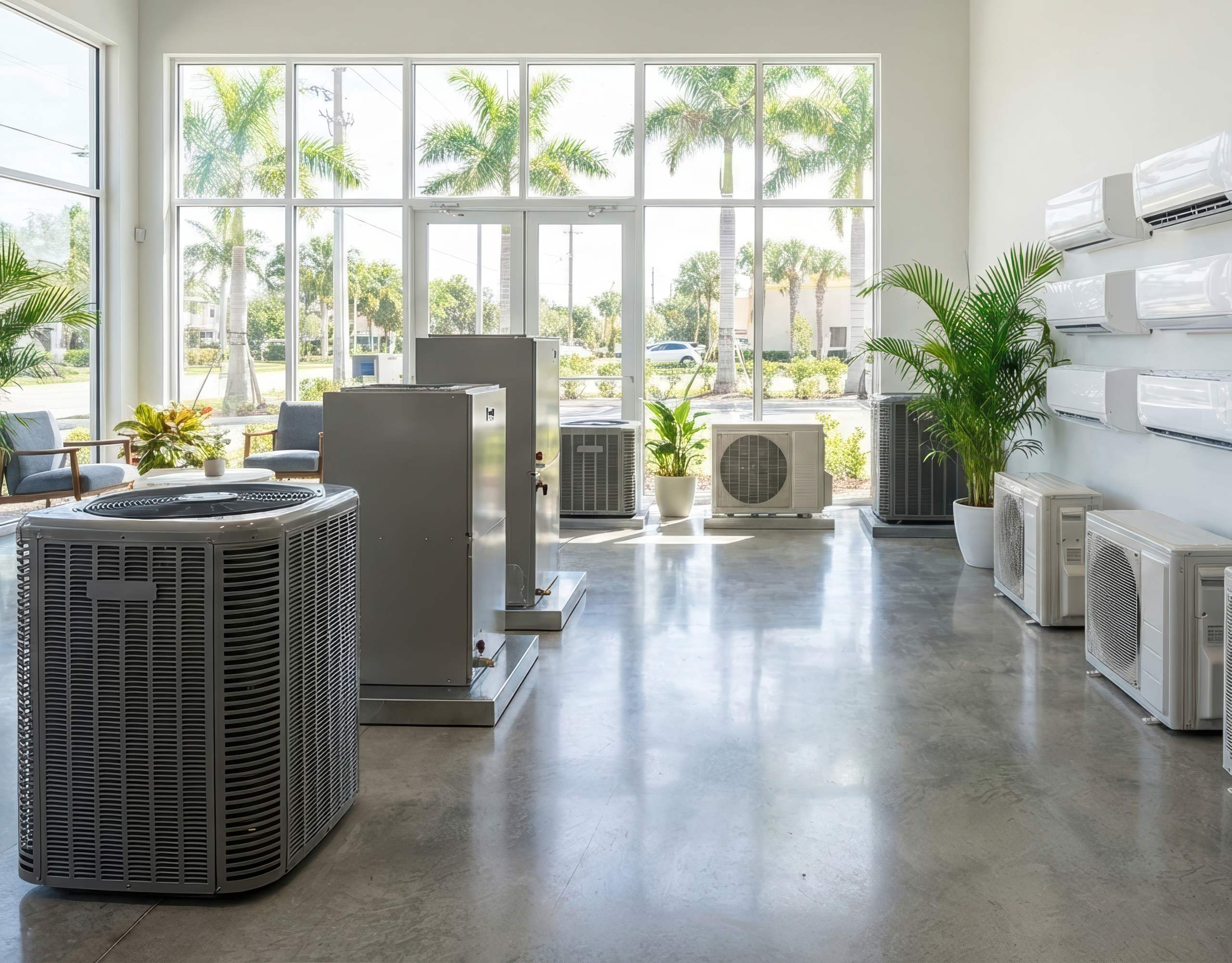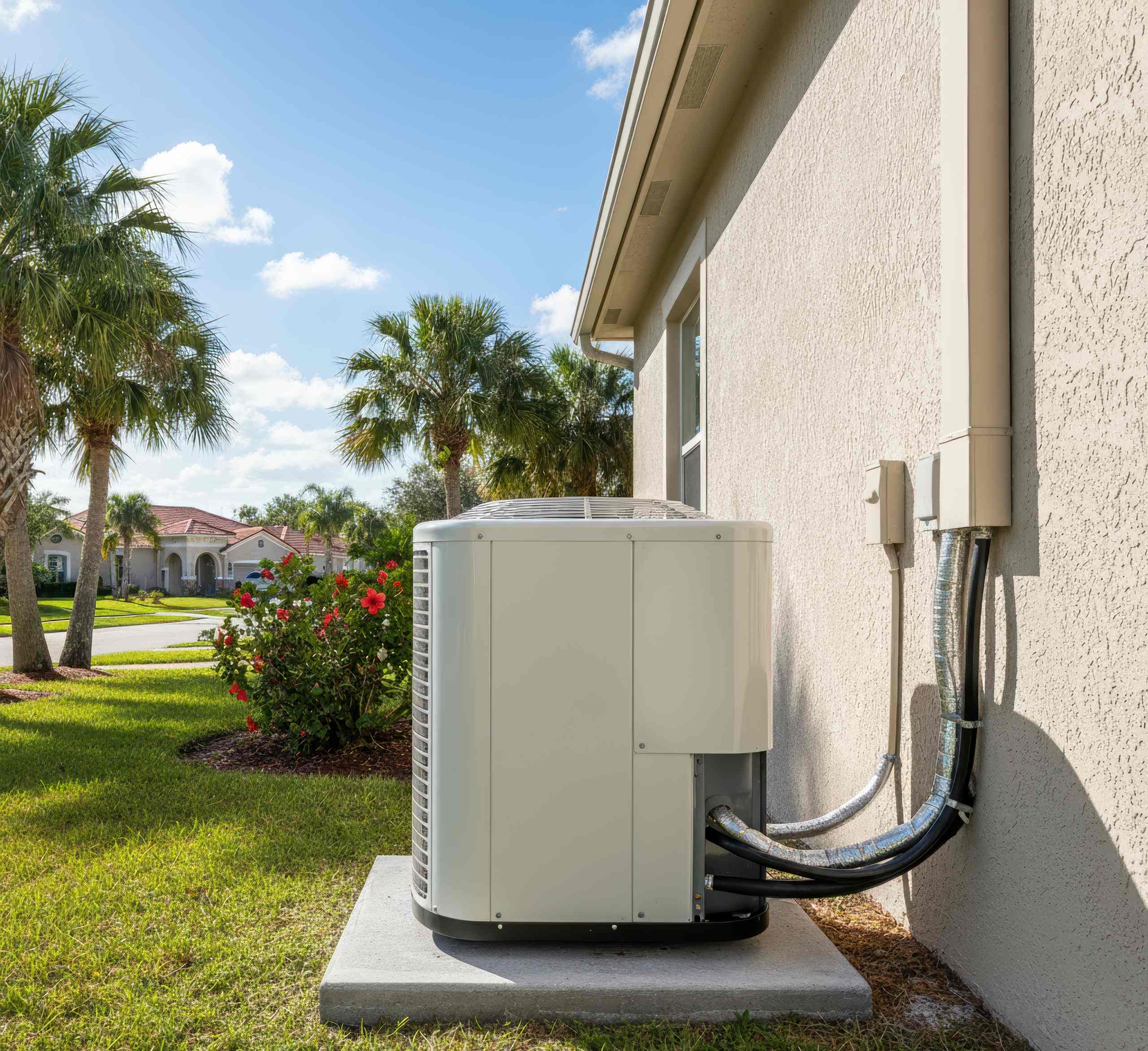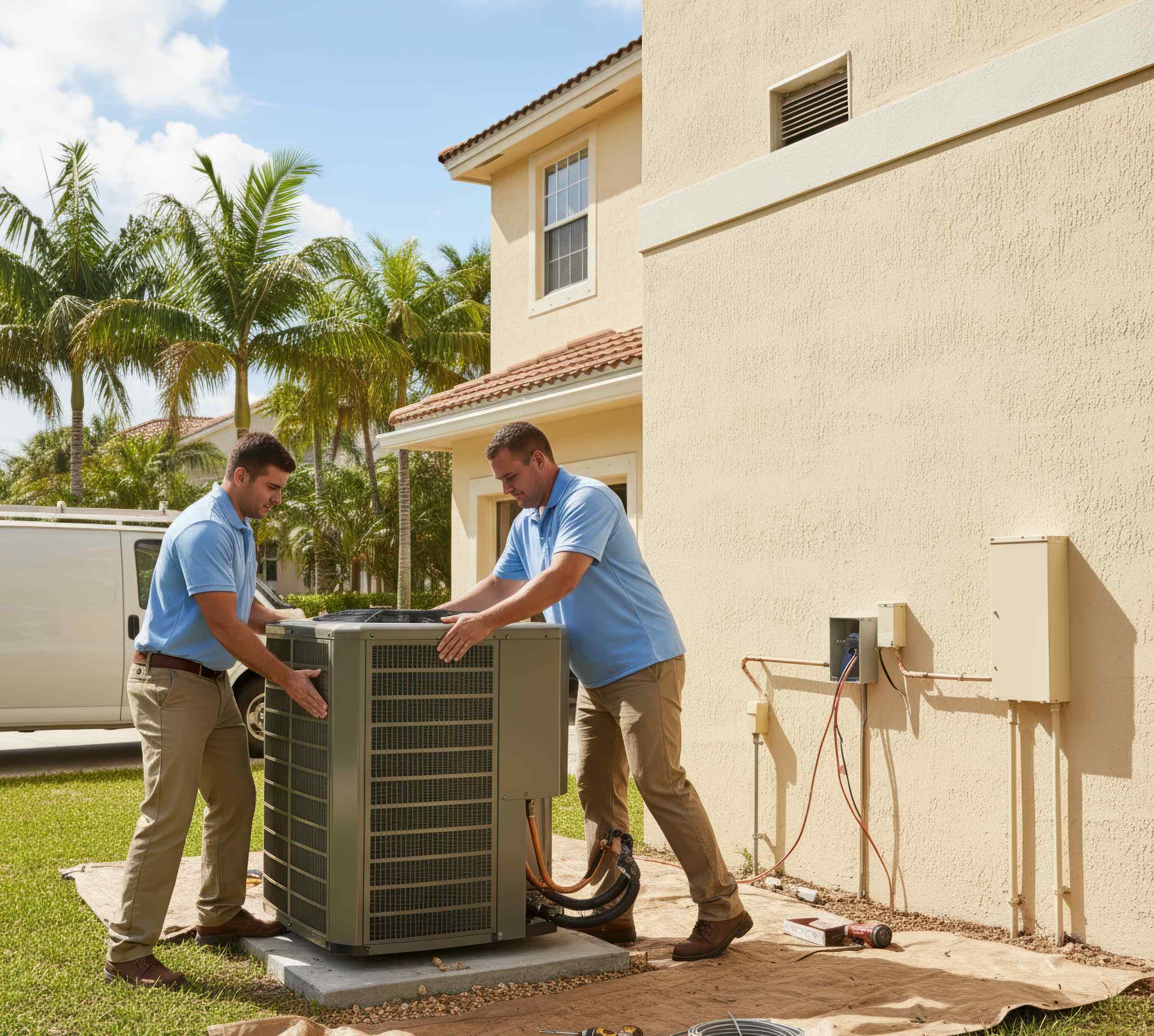Never pretend you didn’t hear a buzzing sound or other strange noise coming from your air conditioning. Such noises are your AC system telling you that something’s wrong.
An AC unit that’s buzzing every few minutes could point to a serious issue with a costly AC repair bill—especially if you delay calling a professional to take a look.
Let’s look at the main reasons why your AC unit may be buzzing every few minutes, what to do about it, and how to prevent it from happening in the future…
WHY AN AC UNIT BUZZES EVERY FEW MINUTES

An AC unit buzzing every few minutes could be due to a worn contactor, a worn-out condenser fan motor, electrical issues like a failing capacitor, a refrigerant leak, a loose panel, compressor malfunction or another reason.
Some of these issues are more serious than others but most require professional AC troubleshooting and repairs before they worsen any damage caused and possibly lead to system replacement. Let’s take a deeper look at each potential reason…
STAY COOL ALL YEAR ROUND WITH ONE WAY AIR…
The team at One Way Air installs, services, and repairs all types of air conditioning systems in Southwest Florida. Get in touch with us here for a quote or call 239-233-4356 in emergencies.
COMMON REASONS YOUR AC UNIT IS BUZZING EVERY FEW MINUTES: DEEPER DIVE
From loose panels that can be easily tightened to a compressor malfunction that could cost thousands of dollars to replace, buzzing sounds are not to be ignored. Most noises come from the outside AC unit (the condenser) and can be relatively minor or loud depending on the issue.
Here’s a closer look at each common reason why you may hear buzzing from your air conditioner…
A worn-out capacitor
If the capacitor is worn out over time, irregular buzzing sounds every few minutes may come from the outside unit. You may also observe inconsistent cooling performance from the AC unit.
The capacitor’s job in an AC system is to turn the unit on and kickstart the motor when required by sending in an electrical surge.
A failed capacitor means that the fan motor and compressor will not function properly—a common reason for an outdoor AC unit not turning on at all or turning on and off sporadically.
If your AC takes a while to turn on or randomly shuts off and powers on by itself, these are other signs of a capacitor issue.
Another electrical issue
A well-maintained home AC system uses a delicate balance of electricity and refrigerant gas working in harmony with the various components of the HVAC system.
Besides a failed capacitor, other electrical components may cause buzzing noises from an AC unit. They can corrode, become loose or degrade from rubbing together, reducing their conductivity, efficiency, and performance.
For instance, loose or faulty wiring can cause noises or a worn-out contactor relay switch (responsible for initiating the flow of electricity when the AC turns on and stopping it when it turns off) may cause a unit to buzz if the power supply is insufficient.
Electrical AC problems require professional fixes from qualified HVAC technicians—otherwise, they can turn into fire hazards. More about this below.
Another sign of an electrical issue is charred areas on the AC unit casing or the smell of burning.
Loose panels
One relatively minor reason for an AC unit buzzing every few minutes after it’s turned on is loose screws or bolts in the unit’s panel.
Homeowners can generally put their ear to the unit and detect where the rattle or buzzing sound is coming from. If it’s the panel, check that the screws or bolts are tight by gently pressing the panel when the AC is running. If the buzzing noise stops, you may have identified the reason.
You should be able to fix this issue with a screwdriver or nut driver without having to call for AC repairs, saving yourself some money. If bolts are missing, however, you may need to hunt for new ones at the local hardware store to fix the problem.
Compressor issues
Compressors convert the refrigerant from a low-pressure liquid into a high-pressure gas, and vice versa. Issues with this component are some of the most serious and potentially costly to fix with failing AC systems. The compressor is the single most expensive part within most systems.
Intermittent buzzing noises may be simply from loose compressor parts but if the compressor is struggling to start (hard starting), you may hear a more consistent buzzing noise from the outdoor unit—and a lack of cooling or weak airflow inside the home through the vents.
You may also notice that the circuit breaker trips after the AC is turned on because the system requires excessive power to run the compressor. This will lead to the outside AC unit not turning on at all.
Fan motor problems
The condenser fan motor powers the fan that blows air across the condenser coil in the outdoor unit, allowing the refrigerant to release heat into the outside air and cool down. You can see the fan at the top of the unit.
Over time, fan motors tend to wear out and this can cause the blades to stop turning and the motor to buzz; in some systems, vibrating fan blades may also hit other components and create unwanted noises. These noises are often loud and unmissable—an obvious sign that something’s wrong that can lead to more serious problems if you don’t address them.
Refrigerant leak
Low refrigerant levels can cause the AC system to struggle and pressure fluctuations to disrupt the delicate balance in cooling systems.
If the refrigerant is leaking from your cooling system, you may hear a hissing sound. However, there may also be buzzing noises coming from the outside unit as it continues to work. The AC coils may also become frozen and provide a visual clue of the cause of the problem.
COMMON FIXES FOR BUZZING AC UNITS
Any strange sounds coming from an AC unit should be investigated—mostly by HVAC professionals, as we shall see below.
Any electrical issues
Take no chances with electrical issues. Call a professional HVAC technician to troubleshoot and fix the problem, whether it’s a faulty capacitor, contactor, wiring or another issue. Most electrical components like capacitors are not too expensive to fix or replace.
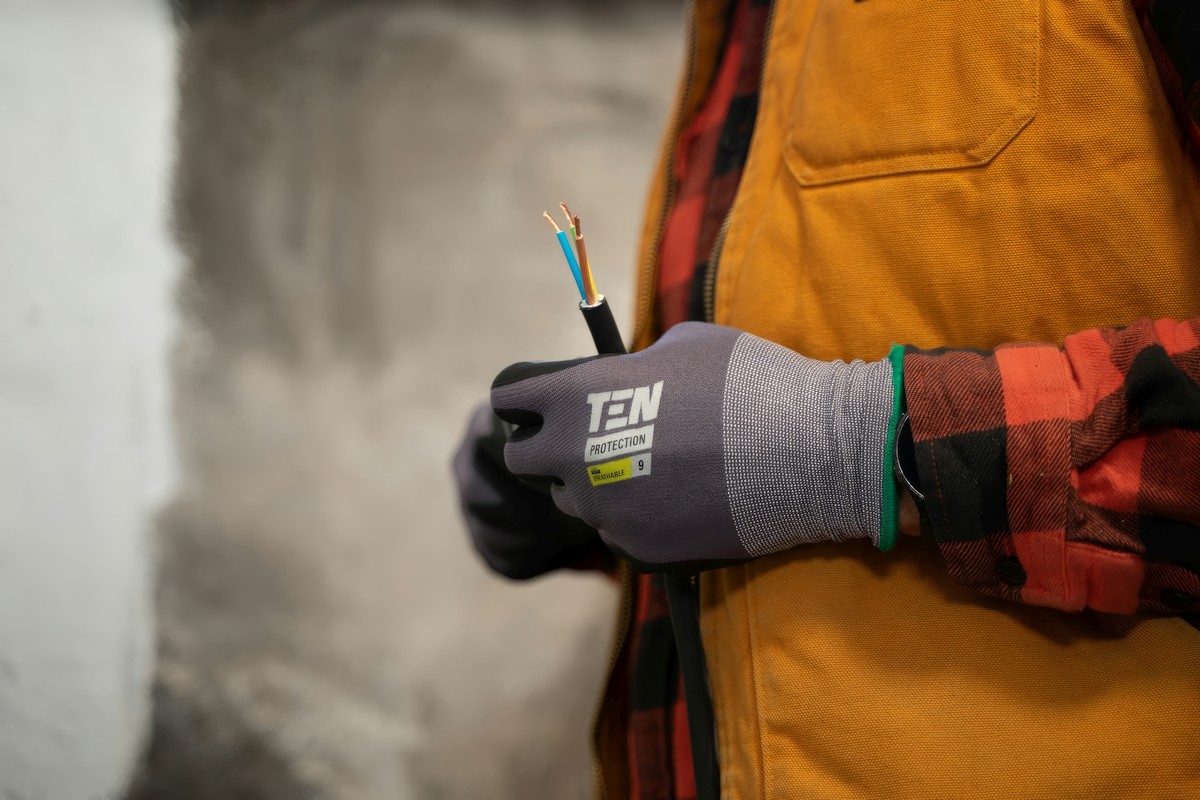
If the AC fan isn’t spinning
If you notice the AC unit fan not spinning, turn the AC off and call your HVAC company because it can lead to other, even more serious problems.
Refrigerant issues
AC refrigerant should only be handled by licensed HVAC technicians. If there’s a refrigerant leak, the cause of the leak will need to be diagnosed and fixed—and the refrigerant recharged.
Compressor issues
Compressor issues are for HVAC professionals only to diagnose and fix, as they may be due to a worn-out part, a refrigerant leak or high-pressure buildup. Compressors can cost thousands of dollars to replace so get a professional to troubleshoot the issue.
The one buzzing AC unit problem you may be able to DIY…
Generally, AC units and DIY are a poor match. However, if a loose screw or bolt on a panel of the AC unit is causing the buzzing, most homeowners can grapple with this issue without professional HVAC help.
FAQs
Strange AC sounds like buzzing, rattling, clicking or running water sounds are caused by a variety of reasons that usually require professional troubleshooting.
First, check if you have a loose panel. This is the one problem with an AC unit buzzing that you can fix yourself. If that’s not the problem, switch the air conditioning off and call an AC professional.
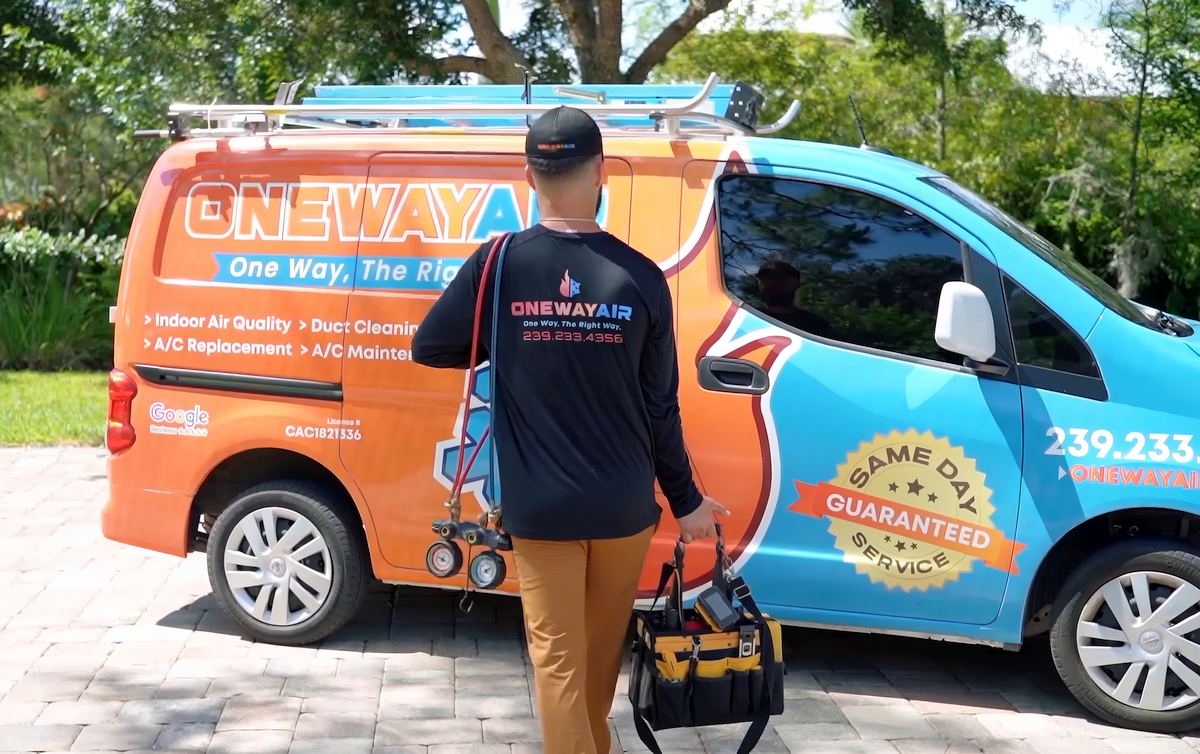
BOOK REGULAR AC MAINTENANCE TO PREVENT STRANGE SOUNDS
Your AC may work even though it’s making buzzing sounds but don’t be fooled. Strange AC sounds are not to be ignored as they may point to underlying problems.
Homeowners pay high costs for AC in Florida but systems can last for 12-15 years or more if well looked after. During AC maintenance and tune-ups, all essential components are cleaned, tightened, lubricated, and tested for any signs of wear and tear. This protects your investment.
Regular AC maintenance can detect problems early and save money on expensive repairs later. Contact an AC professional at One Way Air for an inspection and tune-up today.

